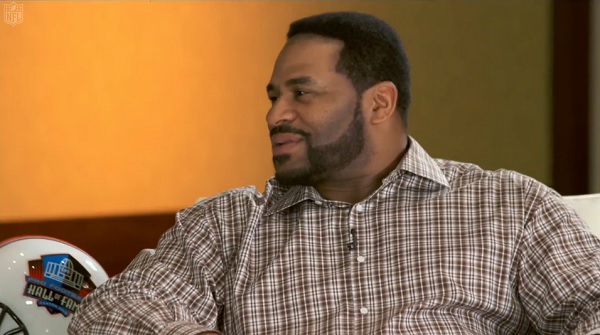Jerome Bettis was known as a franchise running back. The type of player who could carry a team, and dominate the touches while he was on the field. However, in today’s NFL, running backs like Bettis are scarce. This is because more and more NFL teams are using a “Running Back by Committee” system, where running backs split time and share carries.
Some NFL analysts believe this comes from NFL coaches wanting to rest their players, and use different running backs for different situations depending on their skill-sets. Despite those views, Bettis does not see it that way.
“They just don’t have that type of quality back,” said Bettis. “The problem is when you look at the college game, it’s (become) more of a throwing game, because they have the spread offense, they choose to go with a smaller running back, so all the colleges (now) have smaller running backs.”
Bettis continued with his thoughts.
“What happens when it’s time to go to the NFL? The NFL looks at the 5’8, 208 pound running back and they say, ‘I can’t give him 30 carries, he physically can’t handle 30 carries, so I have to have another guy that I can give carries to’”
Despite the criticism of today’s college backfields, Bettis did find an exception to his theory.
“But, when you look at the players that come from the colleges that are predominantly I-formation colleges like, Georgia, LSU, some of the other schools that run a pro-style offense, and those running backs you look at today can handle 30 carries. You look at Todd Gurley, can he handle 30 carries? Absolutely. You look at Melvin Gordon from Wisconsin, power running game, can he take 30 carries? Yes he can.”
Bettis has a point here. Guys like Gordon and Gurley have the potential to be feature backs in this league. However, Gurley may be limited by durability, and Gordon may be limited by his catching ability.
Bettis summed up his thoughts from there.
“So if you look at the situation where the college game is not providing those franchise running backs, that they did in regularity when I was in school (Notre Dame), where 90% of those teams ran a pro-style offense, only 10% ran a run and shoot, passing offense, whereas now, it’s the opposite.”
Jerome’s comments aren’t that off-base. Even players that are considered franchise running backs like Jamaal Charles can’t handle 30 carries a game. The smaller backs just aren’t built for that punishment.
Case in point, look how the Arizona Cardinals fared when they tried to give Andre Ellington, a smaller back, around 30 carries a game. Ellington ended up battling injuries all season, and eventually broke down later in the season, forcing the Cardinals to put him on injured reserve. Now a guy like Le’Veon Bell could probably handle 30 carries, but I doubt Pittsburgh will risk that.
Overall, Bettis’ comments have merit, but honestly, I think with how the NFL is played now, there shouldn’t be any running backs getting 30 carries if they don’t have to, but that’s my opinion.
In the end, Jerome sees his type of running back dying out, and he felt the need to make a point about why that may be so.






